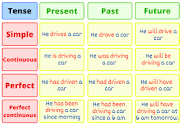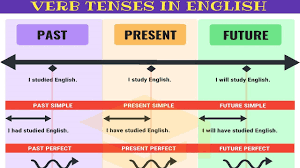Différences entre versions de « Tenses&Forms »
| (19 versions intermédiaires par le même utilisateur non affichées) | |||
| Ligne 67 : | Ligne 67 : | ||
<!-- ************************* Début ****************************** --> | <!-- ************************* Début ****************************** --> | ||
| − | + | ||
| − | |||
| − | |||
|Galerie Images= <!-- Ne pas Modifier---------------------------------> | |Galerie Images= <!-- Ne pas Modifier---------------------------------> | ||
<!-- ************* Commercez les modifications *********************--> | <!-- ************* Commercez les modifications *********************--> | ||
| Ligne 76 : | Ligne 74 : | ||
<!-- Remplacez, Adaptez, Ajoutez ou Supprimez les images et lignes non utilisées--> | <!-- Remplacez, Adaptez, Ajoutez ou Supprimez les images et lignes non utilisées--> | ||
| − | + | Fichier:English forms.jpg |English | |
| − | + | Fichier:Tenses (2).png|English | |
| − | + | Fichier:Tenses.png |English | |
| + | Fichier:Verbs.png |English | ||
| + | Fichier:Tenses2.png |English | ||
| + | Fichier:Regular verbs.png |English | ||
</gallery><!-- ************** Fin modification images***************************--> | </gallery><!-- ************** Fin modification images***************************--> | ||
<!-- ************************* Début modification Vidéo ******************************************************************--> | <!-- ************************* Début modification Vidéo ******************************************************************--> | ||
| − | |Video=<!-- Ne pas Modifier --><!-- Ajoutez une ou plusieurs vidéos | + | |Video=<!-- Ne pas Modifier --><!-- Ajoutez une ou plusieurs vidéos > |
<!-- Balises à utiliser Pour: Youtube : <youtube> / Google : <gvideo> / Archive.org audio : <aoaudio> / Archive.org video: <aovideo> | <!-- Balises à utiliser Pour: Youtube : <youtube> / Google : <gvideo> / Archive.org audio : <aoaudio> / Archive.org video: <aovideo> | ||
/ WeGame : <wegame> / Tangler forum : <tangler> / Gametrailers: <gtrailer> / Nicovideo : <nicovideo> / GoGreenTube : <ggtube> -----> | / WeGame : <wegame> / Tangler forum : <tangler> / Gametrailers: <gtrailer> / Nicovideo : <nicovideo> / GoGreenTube : <ggtube> -----> | ||
| Ligne 89 : | Ligne 90 : | ||
<!-- ****************** Commercez les modifications pour les Vidéos *******************************************************--> | <!-- ****************** Commercez les modifications pour les Vidéos *******************************************************--> | ||
| − | <youtube width="220" height="220"> | + | <youtube width="220" height="220">https://www.google.com/search?sa=X&hl=fr&tbm=vid&sxsrf=ALiCzsbY_uO30WV6MoI1-sXQsD7rZkXCGA:1670668435649&q=forms+tenses+english&ved=2ahUKEwift5P17O77AhXe_7sIHXRJD7gQ8ccDegQITxAD&biw=1062&bih=658&dpr=1.25#fpstate=ive&vld=cid:7a420a1b,vid:PSfXvdKpeVs</youtube> |
| − | <youtube width="220" height="220"> | + | <youtube width="220" height="220">https://www.google.com/search?sa=X&hl=fr&tbm=vid&sxsrf=ALiCzsbY_uO30WV6MoI1-sXQsD7rZkXCGA:1670668435649&q=forms+tenses+english&ved=2ahUKEwift5P17O77AhXe_7sIHXRJD7gQ8ccDegQITxAD&biw=1062&bih=658&dpr=1.25#fpstate=ive&vld=cid:7b764738,vid:hk4MjcRdTgc</youtube> |
| − | <youtube width="220" height="220"> | + | <youtube width="220" height="220">https://www.google.com/search?sa=X&hl=fr&tbm=vid&sxsrf=ALiCzsbY_uO30WV6MoI1-sXQsD7rZkXCGA:1670668435649&q=forms+tenses+english&ved=2ahUKEwift5P17O77AhXe_7sIHXRJD7gQ8ccDegQITxAD&biw=1062&bih=658&dpr=1.25#fpstate=ive&vld=cid:57bddedf,vid:AvHCJEZdZCY </youtube> |
| + | |||
| + | |||
}}<!-- ************************* Fin modifications pour les Médias *******************************************************--> | }}<!-- ************************* Fin modifications pour les Médias *******************************************************--> | ||
| Ligne 116 : | Ligne 119 : | ||
}}<!-- ********************* FIN Fiche Didactique Mots-clés *******************--> | }}<!-- ********************* FIN Fiche Didactique Mots-clés *******************--> | ||
| − | |||
= {{Widget:Exemples-applications-utilisations-Fiche}} = | = {{Widget:Exemples-applications-utilisations-Fiche}} = | ||
| Ligne 128 : | Ligne 130 : | ||
<!-- ****************** Commercez les modifications *********************** --> | <!-- ****************** Commercez les modifications *********************** --> | ||
| − | *............ | + | '''*Tenses and their functions''' |
| − | + | The table below gives an overview of some of the basic functions of tenses and aspects. Tenses locate an event in time, while aspects communicate durations and relationships between events that happen at different times. | |
| − | + | ||
| − | . | + | '' |
| − | + | Tense Function Example'' | |
| − | + | '''Present simple''' used for facts, generalizations, and truths that are not affected by the passage of time | |
| − | . | + | “She writes a lot of papers for her classes.” |
| − | + | ||
| + | '''Past simple''' used for events completed in the past | ||
| + | “She wrote the papers for all of her classes last month.” | ||
| + | |||
| + | '''Future simple''' used for events to be completed in the future | ||
| + | “She will write papers for her classes next semester.” | ||
| + | |||
| + | '''Present perfect''' used to describe events that began in the past and are expected to continue, or to emphasize the relevance of past events to the present moment | ||
| + | “She has written papers for most of her classes, but she still has some papers left to write.” | ||
| + | |||
| + | '''Past perfect''' used to describe events that happened prior to other events in the past | ||
| + | “She had written several papers for her classes before she switched universities.” | ||
| + | |||
| + | '''Future perfect''' used to describe events that will be completed between now and a specific point in the future | ||
| + | “She will have written many papers for her classes by the end of the semester.” | ||
| + | '''Present continuous''' used to describe currently ongoing (usually temporary) actions | ||
| + | “She is writing a paper for her class.” | ||
| + | |||
| + | '''Past continuous''' used to describe ongoing past events, often in relation to the occurrence of another event | ||
| + | “She was writing a paper for her class when her pencil broke.” | ||
| + | |||
| + | '''Future continuous''' used to describe future events that are expected to continue over a period of time | ||
| + | “She will be writing a lot of papers for her classes next year.” | ||
| + | |||
| + | '''Present perfect continuous''' used to describe events that started in the past and continue into the present or were recently completed, emphasizing their relevance to the present moment | ||
| + | “She has been writing a paper all night, and now she needs to get some sleep.” | ||
| + | |||
| + | '''Past perfect continuous''' used to describe events that began, continued, and ended in the past, emphasizing their relevance to a past moment | ||
| + | “She had been writing a paper all night, and she needed to get some sleep.” | ||
| + | |||
| + | '''Future perfect continuous''' used to describe events that will continue up until a point in the future, emphasizing their expected duration | ||
| + | “She will have been writing this paper for three months when she hands it in.” | ||
| + | |||
}}<!--************** Fin Fiche Didactique Explicitations ******************* --> | }}<!--************** Fin Fiche Didactique Explicitations ******************* --> | ||
| − | |||
= {{Widget:Erreurs-confusions-Fiche}} = | = {{Widget:Erreurs-confusions-Fiche}} = | ||
| Ligne 150 : | Ligne 183 : | ||
{{@}} '''Erreur: Croire que''' | {{@}} '''Erreur: Croire que''' | ||
| − | * . | + | * We use the past simple: |
| − | * . | + | 1. To describe actions which happened in the recent or distant past: |
| + | |||
| + | * The Past Continuous: | ||
| + | We use it for: | ||
| + | Temporary actions in progress in the past. | ||
| + | |||
{{@}} '''Confusion possible ou glissement de sens''' | {{@}} '''Confusion possible ou glissement de sens''' | ||
| − | * Confusion entre [[ | + | * Confusion entre [[Subject + Verb + ed OR Irregular Past Form + Objects - Subject + "be" in the past + verb + -ing.]] |
| − | * Confusion entre [[ | + | * Confusion entre [[Subject + did not (didn't) + bare infinitive Verb + Objects - Subject + conjugate the helping verb "be" + not + verb + -ing.]] |
{{@}} '''Erreur fréquente''': | {{@}} '''Erreur fréquente''': | ||
| − | * .. | + | * (Why, What, etc.) + did + Subject + bare inf. Verb + Objects? |
}}<!-- ************** Fin Fiche Didactique Conceptions ********************* --> | }}<!-- ************** Fin Fiche Didactique Conceptions ********************* --> | ||
| Ligne 171 : | Ligne 209 : | ||
<!-- ************ Commercez les modifications *********************--> | <!-- ************ Commercez les modifications *********************--> | ||
| − | * [[ | + | * [[What are the tense forms?]]? |
| − | * [[ | + | * [[How many tense forms are in English?]]? |
| − | * [[ | + | * [[What are the 5 forms?]]? |
}}<!-- ******** Fin Fiche Didactique Questions ******************* --> | }}<!-- ******** Fin Fiche Didactique Questions ******************* --> | ||
Version actuelle datée du 19 février 2023 à 21:22
 Traduction
Traduction
 Définition
Définition
Domaine, Discipline, Thématique
Définition écrite
- What is the definition of a tense?
According to the Oxford Learner’s Dictionary, the term ‘tense’ is defined as “any of the forms of a verb that may be used to show the time of the action or state expressed by the verb.” The Merriam-Webster Dictionary provides a slightly different definition. According to it, the word ‘tense’ is defined as “a distinction of form in a verb to express distinctions of time or duration of the action or state it denotes.”
In the English language, the word ‘tense’ is used to denote a characteristic of the verb in a sentence. The tense of a verb is used to depict the particular time in which a specific or event is taking place. |
Définition graphique
|Galerie Images=
|Video=
}}
 Concepts ou notions associés
Concepts ou notions associés
 Exemples, applications, utilisations
Exemples, applications, utilisations
|
*Tenses and their functions The table below gives an overview of some of the basic functions of tenses and aspects. Tenses locate an event in time, while aspects communicate durations and relationships between events that happen at different times.
Tense Function Example Present simple used for facts, generalizations, and truths that are not affected by the passage of time “She writes a lot of papers for her classes.” Past simple used for events completed in the past “She wrote the papers for all of her classes last month.” Future simple used for events to be completed in the future “She will write papers for her classes next semester.” Present perfect used to describe events that began in the past and are expected to continue, or to emphasize the relevance of past events to the present moment “She has written papers for most of her classes, but she still has some papers left to write.” Past perfect used to describe events that happened prior to other events in the past “She had written several papers for her classes before she switched universities.” Future perfect used to describe events that will be completed between now and a specific point in the future “She will have written many papers for her classes by the end of the semester.” Present continuous used to describe currently ongoing (usually temporary) actions “She is writing a paper for her class.” Past continuous used to describe ongoing past events, often in relation to the occurrence of another event “She was writing a paper for her class when her pencil broke.” Future continuous used to describe future events that are expected to continue over a period of time “She will be writing a lot of papers for her classes next year.” Present perfect continuous used to describe events that started in the past and continue into the present or were recently completed, emphasizing their relevance to the present moment “She has been writing a paper all night, and now she needs to get some sleep.” Past perfect continuous used to describe events that began, continued, and ended in the past, emphasizing their relevance to a past moment “She had been writing a paper all night, and she needed to get some sleep.” Future perfect continuous used to describe events that will continue up until a point in the future, emphasizing their expected duration “She will have been writing this paper for three months when she hands it in.” |
 Erreurs ou confusions éventuelles
Erreurs ou confusions éventuelles
- We use the past simple:
1. To describe actions which happened in the recent or distant past:
- The Past Continuous:
We use it for: Temporary actions in progress in the past.
![]() Confusion possible ou glissement de sens
Confusion possible ou glissement de sens
- Confusion entre Subject + Verb + ed OR Irregular Past Form + Objects - Subject + "be" in the past + verb + -ing.
- Confusion entre Subject + did not (didn't) + bare infinitive Verb + Objects - Subject + conjugate the helping verb "be" + not + verb + -ing.
- (Why, What, etc.) + did + Subject + bare inf. Verb + Objects?
 Questions possibles
Questions possibles
 Liaisons enseignements et programmes
Liaisons enseignements et programmes
Idées ou Réflexions liées à son enseignement
Aides et astuces
Education: Autres liens, sites ou portails
 Bibliographie
Bibliographie
Pour citer cette page: ([1])
ABROUGUI, M & al, 2023. Tenses&Forms. In Didaquest [en ligne]. <http:www.didaquest.org/wiki/Tenses%26%2338;Forms>, consulté le 24, novembre, 2024
- ..................
- ..................
- ..................
- ..................








